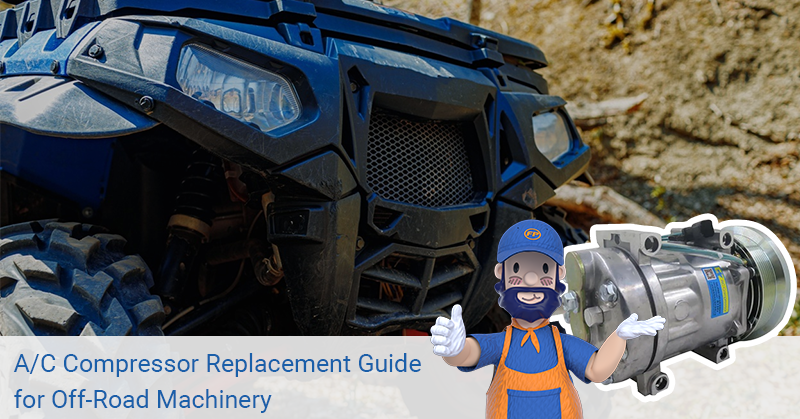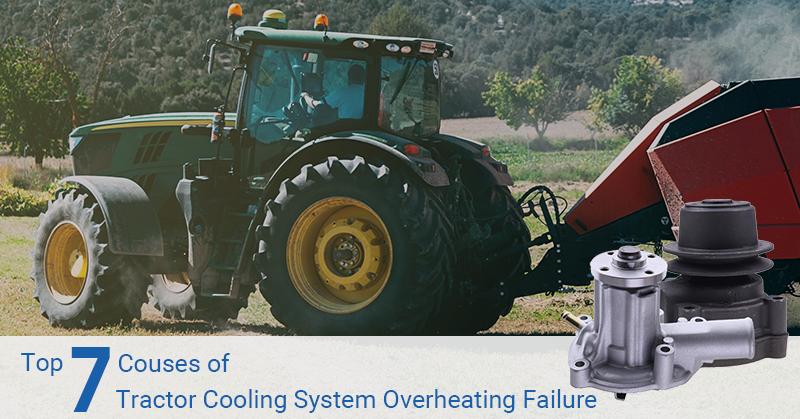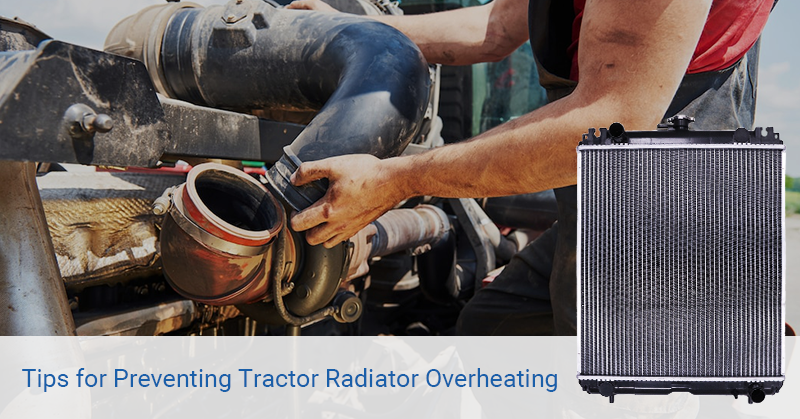Heavy equipment maintenance is crucial for the trucking industry, but the cold weather and harsh road conditions in winter are big challenges. In winter, the truck’s engine and certain components experience greater wear and tear compared to other seasons. To ensure that your truck performs well during the cold season, we provide the following maintenance tips. Hope to keep your truck running safely in winter.

Why do trucks need maintenance in the winter?
Winter is a time when pickup truck maintenance and operations face various obstacles.
- Liquid components such as coolant, brake fluid and engine oil may be affected by temperature changes. If the liquid is not adapted to the low-temperature environment, it may cause malfunctions such as freezing, solidification, or loss of viscosity, causing parts to fail to function properly.
- After heavy snowfall, winter roads are often salted or polished to remove snow and ice, which will accelerate the corrosion of parts and blockage of motor components. This may affect the proper operation of the engine, electrical system, exhaust system, etc.
- Severe weather in winter such as snow, icy rain and low temperature will increase the risk of component damage.
- Many owners find that postponing maintenance work until the spring can be more expensive, and the trucks no longer operate properly during the winter.
Heavy equipment maintenance – Best tips for winter trucks
Replace your truck’s engine oil
In cold temperatures, engine oil becomes thick and less fluid. Therefore, truck owners are advised to replace the oil with one suitable for winter use to improve its flowability and reduce engine wear. Additionally, check the oil dipstick to ensure an adequate oil level.
Inspect the fuel system
Low temperatures in winter can increase fuel viscosity, leading to poor fuel supply. Hence, it is necessary to inspect the fuel filter and tank to ensure the proper functioning of the fuel system. Additionally, it is recommended to choose higher octane fuel while refueling to enhance fuel flow.
Ensure all fluids are topped up
This includes coolant, antifreeze, and other additives that are crucial in combating winter conditions, particularly their impact on the radiator. Proper coolant and antifreeze levels protect the engine from cold temperature damage and ensure its normal operation in cold environments.
Check your cooling system
Low temperatures in winter can cause issues with the vehicle’s cooling system. Therefore, regular checks of coolant level and color, as well as cleaning dust and debris from the radiator surface, are necessary. If any cooling system problems are detected, timely repair or replacement of relevant components should be carried out. This ensures the proper functioning of the cooling system and prevents overheating and related issues.
Inspect tire tread and pressure
Snow-covered roads in winter reduce tire traction, so it is important to check tire tread depth and pressure. If tires are heavily worn or underinflated, they should be promptly replaced or adjusted. Additionally, to enhance tire traction, it is advisable to use winter tires or tire chains.
Replace wiper blades
During winter, old truck wiper blades may have worn out or degraded. New wiper blades typically have better elasticity and cold resistance, allowing them to effectively clear ice, snow, and rainwater, providing improved visibility and driving safety.
Maintain the body and chassis
Remove snow and ice from the truck body and chassis, and inspect them for scratches and damages. If any damage is found, timely repair or replacement of the parts is necessary.
Conduct a comprehensive check of all vehicle lights
Check the working condition of all vehicle lights in winter, and replace any burnt-out bulbs promptly. As you know, low visibility during foggy mornings in winter increases the risk of rear-end accidents.
Final thoughts
This guide aims to enhance the safety and annual maintenance expenses of driving pickup trucks. Regardless of the season or weather conditions, truck owners should maintain their vehicles as required. By following some simple guidelines and regularly inspecting truck parts and accessories, you can ensure smooth year-round operation of your pickup truck. To know more about Heavy equipment maintenance, please follow our blogs.







Leave A Comment